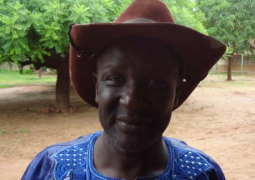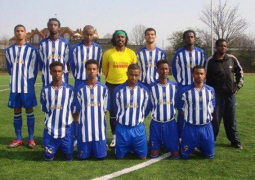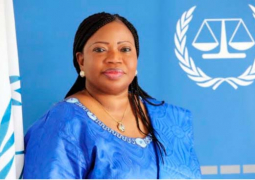For the past five or so months, Laurent Gbagbo put up an unnecessary show of stubbornness, clinging on to power by a weak and overstretched string.
The writing was too legible on the wall to be ignored, yet a history professor who ruled the West African state of Ivory Coast for a little over a decade turned a blind eye to the many lessons history is replete with on the foolishness of dictatorship and megalomania.
So obsessed with power, Gbagbo had the wrong feeling that he was in charge in his bunker, completely ignorant of the reality of the dynamics in the world above his basement hideout.
No wonder, when time caught up with him, he perspired profusely, as someone else helped him dress up for the short but momentous trip to the Golf Hotel, totally humiliated before millions of persons who watched the TV footages across the world.
The end had indeed come as his soldiers, among them his so-called confidantes and special troops, are now surrendering to troops loyal to President Alassane Ouattara.
As we always emphasize in these pages, power belongs to the people, and the world has now reached a stage where no leader or government can rule its people anyhow.
Leaders must understand that the people have long recognized that they have rights, and freedom of choice in the way they are governed.
Many have wondered why such an intellectual would treat the realities of life like he did, wondering whether absolute power really makes people forget the realities of life.
The story of Laurent Gbagbo is a replica of what befell other dictators in
That African leaders can allow themselves to be dealt with decisively by the realities of history is mind-boggling. At a time when it is appropriate for them to leave, they refuse to do so, and live in dangerous denial as Gbagbo did, even when times have changed.
Leaders should always read the writing on the wall, and note that whether it is today or tomorrow, they will surely leave the presidential palace and office, as it is not their personal property.
The happenings in
For those African leaders who claimed to prefer staying away from armed intervention to end the Ivorian crisis, because it was the most appropriate thing to do to obviate bloodshed, as they put it, their positions have been dealt a blow by the realities of the carnage which took place in that country.
They should now accept that their position has been discredited, after their stated policy was dragged in the mud by an intransigent Gbagbo.
In any case, the end has finally come for Laurent Gbagbo and with that, we hope, the end of the so-called power-sharing in African politics.
That was what some Africans were prescribing for the troubled
“In the face of an obstacle which is impossible to overcome, stubbornness is stupid.”
Simone de Beauvoir
Read Other Articles In Article (Archive)
Defence opens in alleged theft case
Jan 29, 2014, 10:23 AM




